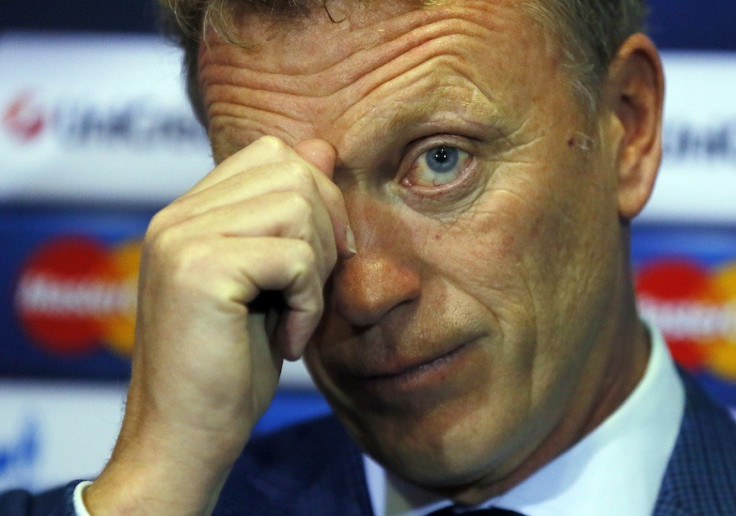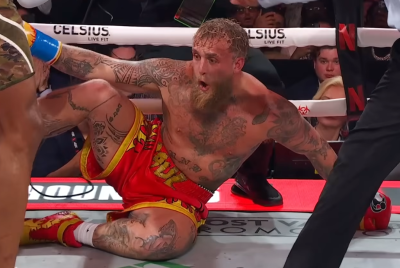Moyes a Scapegoat for Problems That Were Equally Prevelant Under Ferguson

As David Moyes sat with his head in his hands in the dugout at the Etihad Stadium with the scoreboard showing 4-1 in favour of Manchester City, it would have been easy to label the manager a failure at Manchester United just five games into the season.
But his tactics and squad for the derby match were eerily similar to those of Sir Alex Ferguson in recent seasons, the difference being that the retired manager was free from the scrutiny that incoming coaches must endure thanks to his many years of success.
Twitter users reacted harshly to Moyes' decision to play Welbeck and then refuse to replace the striker with Javier Hernandez, who may decide to seek an exit from United if he continues to be left on the sidelines despite his prowess in front of goal.
Equally, the manager's refusal to play Shinji Kagawa has been a sore point for both United supporters and former club Borussia Dortmund, with Jurgen Klopp recently commenting that the Japan international is being wasted by the English giants.
These are both tactics that Ferguson himself often employed, often picking Welbeck in front of Hernandez despite the England striker scoring just two goals for the club over the course of the 2012-13 campaign. His purchase of talented playmaker Kagawa was particularly curious given he handed him just 17 starts over the course of 2012-13; Klopp's comments about him being wasted came before Moyes had even stepped into the dugout for the first time.
Those who believe United are in crisis right now would do well to remember that in 2011 the scoreline between United and City was of a greater gap than 4-1 - with City running rampant after a red card to Jonny Evans and scoring five goals in the second half to take the victory over their rivals to an embarrassing 6-1.
The argument could be made that United's most recent loss was worse as they kept 11 men on the field throughout the match, but the statistics are at odds with that. City dominated the possession in 2011 (55% to 45%), while United did so after picking up in the last half hour at the weekend (59% to 41%). Another important point is that this loss broke no records; in 2011 United hadn't conceded so many goals since 1930 and it was also their biggest loss at the hands of City since they lost 5-0 to the Blues in 1955.
The psychological effect that this kind of loss would have had on the team two years ago would have been difficult to get past. After the 6-1 humiliation, Ferguson must certainly have had a hand in making sure that players were reminded of their duties as they managed to build an eight-point lead over City in the table by April.
For Moyes, the challenge will be taking more of the blame than Ferguson ever had to suffer for the loss and proving to the players that they are a title winning side regardless of the Scottish legend's absence.
United have always been known for gaining maximum points against the sides they are odds-on to beat on a consistent basis Ferguson often publicly decried losing to the big sides, but he proved in 2011-12 that he could still come so close to title glory - within goal difference only - having lost to City in both league meetings, with a combined score of 7-1.
The key to Ferguson's success was always consistency as United rarely suffered back-to-back defeats. Chelsea are well known for turning any nagative run of results into a crisis, and as a result the media were often quick to jump on the west London club when they had bad results.
When City beat United on October 23, 2011 they had a five-point lead over the Red Devils, and by December the teams were even. By April, United had an eight-point lead over their rivals in the title race.
The rest of the story for that season is well documented and a defeat to Wigan, a draw with Everton and the eventual 1-0 loss to City in the final games of the campaign brought on a last-minute title defeat that will forever resonate in the United players' minds.
If the club are to have any chance of winning the title or at least putting a serious challenge for it this time around, they will need to recover from this defeat in the same way they did after the 6-1 battering. Hope is certainly not lost and City don't have the title yet but for a club going through a big transition it will be interesting to see how they deal with the manager taking the majority of the flack rather than the players for a change.
The truth is that United's problems at the weekend were just as prevalent under Ferguson as they are under Moyes and a summer in which he landed only Marouane Fellaini to address such issues won't be enough to make major many changes this season. It's worth noting that Ferguson's answer to United's midfield problems in recent seasons was to keep Paul Scholes going as long as possible and then bring him out of retirement when all else failed, rather than handing youngster Paul Pogba a shot and taking the risk of placing untried youth in the mix or spending big on an established midfielder.
But with City and Chelsea both seriously strengthening and Arsenal flashing the cash for the first time in a while these problems could be set to be a lot more exposed, regardless of the man standing in the dugout.
© Copyright IBTimes 2025. All rights reserved.





















